The Solar Power Market and Hybrid Solar Inverter Development In Nigeria
 Jan 11,2025
Jan 11,2025

 XINDUN
XINDUN
Nigeria, the most populous country in Africa, has long faced severe challenges in its electricity market due to imbalanced supply and demand. These challenges have limited economic growth and development in Africa's most populous country. Frequent power outages and power shortages have been long-standing challenges for businesses, households and industries for decades. Nigeria is the fastest-growing country in the world to develop small off-grid solar power plants, except Tanzania. However, difficulties in solar power generation in Nigeria still exist, such as immature technology that prevents the construction of small off-grid solar power plants and lack of funds. According to the Nigerian Energy Commission, solar power generation provides a sustainable alternative to solve power shortages.

Inverter systems can provide stable and uninterrupted power and provide individuals and businesses with power independent of the grid. With investment, increased awareness and government support, the solar inverter market is changing the power industry in Nigeria, thereby promoting economic growth and development in Nigeria.
I. Nigeria's power structure and current situation
Power structure:
About 70% of Nigeria's current power generation comes from thermal power and 30% from hydropower. Most of the power generation equipment is old and lacks proper maintenance. At the same time, it also faces problems such as insufficient natural gas supply and serious power theft. Solving the contradiction between power supply and demand has become a top priority for Nigeria's economic development.
Electricity generation in Nigeria from 2000 to 2023
(in terawatt hours)

Nigeria's electricity generation is expected to exceed 40.65 TWh in 2023, up from about 35 TWh in 2022, with solar power generation reaching 112 MW.
Current situation:
Prominent contradiction between power supply and demand: Nigeria's power infrastructure construction is relatively backward, the power grid construction is not sound, and some power stations are inefficient, resulting in increasingly prominent contradictions between power supply and demand. According to statistics, Nigeria's total installed power generation capacity is 13.5GW, and the peak power demand is 8.25GW, but the actual power generation in recent years is less than 4GW.
A large number of people lacking power: Nigeria is the most populous country in Africa, with a population of more than 223.8 million, and nearly 60% of the population is short of power. According to Nigeria's Minister of Power, 90 million people in Nigeria lack power. The International Monetary Fund estimates that power supply problems cost Nigeria $29 billion a year, equivalent to a 5.8% loss in the country's GDP.
Poor power infrastructure: There are still 20 million households in Nigeria that are short of power, and most government agencies, institutions and more than 97% of enterprises have to provide their own generators for power generation. According to different statistics, Nigeria's actual power generation capacity can usually only meet 50%-60% of total demand.
Frequent power grid collapse: Nigeria's power grid has experienced nearly 140 failures in the past 10 years. Between 2017 and 2023, the country's power grid collapsed 46 times. From 2022 to now, the power grid has collapsed about 10 times. The power grid collapse has resulted in only 5-6 hours of stable power supply in some areas every day.
Impact of electricity on the economy: Power shortages are killing Nigeria's industry. According to data from the Nigerian Manufacturers Association, various industries spent 93.1 billion naira on alternative energy in 2018, and companies without generators cannot survive in Nigeria.
National policy: In June 2023, the Nigerian government issued the Electricity Act, actively promoting the de-monopoly of the power industry, optimizing the business environment of power infrastructure, accelerating the construction of clean energy, and promoting the optimization and upgrading of the country's power structure. It has achieved the decentralization and liberalization of some powers in the power sector, empowering local governments to participate in power development, and attracting the private sector to participate in Nigeria's power supply industry. In addition, the government has formulated the National Integrated Power Policy and Strategic Implementation Plan and plans to install more than 10 million meters in the next five years to improve power infrastructure and improve power supply quality. At the same time, the government has also introduced a service-based tariff (SBT) policy, which aims to ensure that the electricity bills paid by customers reflect the daily supply hours of electricity provided by power companies by improving the quality of service to end users.
II. Electricity prices in Nigeria
The household electricity price in Nigeria is 50.823 naira per kilowatt-hour, equivalent to $0.032; the commercial electricity price is 65.77 naira per kilowatt-hour, equivalent to $0.042. The Nigeria Electricity Regulatory Commission will raise the electricity price for Class A users from 68 naira per kilowatt-hour to 225 naira in April 2024. The electricity costs of some residents and enterprises will increase significantly. For some households and small businesses, electricity expenditure accounts for an increasing proportion of daily expenses, which brings them certain economic burden. In addition, Nigeria's power supply is unstable and power outages are frequent, which makes it impossible for Nigerians and enterprises to obtain sufficiently stable power supply guarantee when using electricity, affecting residents' daily electricity consumption and the production and operation of enterprises. The Nigeria power regulatory department said that although the electricity price increase may cause certain economic pressure on some consumers, in the long run, it will help solve Nigeria's long-standing power shortage problem. Raising electricity prices will attract more investors to enter the Nigeria power market and inject new vitality into the development of the industry. In order to further alleviate the problem of power shortage, the Nigeria government encourages enterprises and individuals to invest in solar power facilities and supports this development by providing financial subsidies, tax exemptions and other preferential policies. This will not only help alleviate the problem of power shortage, but also promote the optimization and upgrading of Nigeria's energy structure.
III.Prospects of Solar Power Generation in Nigeria
Rich natural resources: Nigeria is located in the tropics, with abundant sunshine throughout the year and more than 2,600 hours of sunshine per year, which provides unique natural conditions for solar power generation. Compared with other countries and regions, Nigeria has unparalleled natural resource advantages in solar power generation, making solar power generation projects more economical and feasible here.
National policy: The Nigerian government has deeply realized the important role of solar power generation in alleviating energy shortages and reducing carbon emissions, and has therefore introduced a series of incentives and laws to encourage large-scale investment in solar development. These policies include feed-in tariff subsidies (FiT), power purchase agreements (PPA), tax incentives and exemptions, which not only reduce the cost burden of investors, but also increase the return on investment of projects. At the same time, the government is also actively cooperating with international financial institutions to provide financing support for solar power generation projects, further lowering the capital threshold for investors. According to Bloomberg New Energy Finance, Nigeria's solar installed capacity is expected to reach 21.5GW by 2030, far higher than any government plan or our previous forecast of 5.1GW by 2030.
Market demand: Nigeria's weak power infrastructure has led to a long-term power shortage problem. Grid collapses frequently occur across the country, and the daily stable power supply time of the power grid in some areas is limited. This power shortage problem provides a huge market demand for solar power generation. In addition, with the continued development of Nigeria's economy and the continuous growth of its population, the demand for electricity will continue to rise. There is a large gap in power supply, with more than 80 million people without electricity every year. This situation not only provides a broad market space for solar power generation projects, but also gives them huge social value and economic benefits. Investing in solar power generation projects can not only meet local power demand, but also bring rich economic returns to investors.
Sustainable energy transformation: Solar power generation projects not only have significant economic benefits, but also have important environmental protection and sustainable development values. By investing in solar power generation projects, entrepreneurs can not only contribute to the transformation of Nigeria's energy structure, but also establish green and low-carbon corporate image on a global scale, and enhance the company's social responsibility and brand value.
Future development trends of solar energy:
A. Installed capacity growth: It is expected that Nigeria's solar power generation installed capacity will continue to grow in the next few years. With the support of policies and technological advancement, more solar power generation projects will be built and operated.
B. Market diversification: With the continuous development of the solar power generation market, Nigeria's solar market will gradually diversify. In addition to traditional utility-scale solar projects, off-grid solar markets and distributed solar projects will also develop rapidly.
C. Technological innovation and application: With the continuous advancement and innovation of technology, new technologies and applications will continue to emerge in Nigeria's solar market. For example, more efficient solar battery, smarter operation and maintenance management systems, etc. will help improve the efficiency and reliability of solar power generation.
D. International cooperation and competition: With the acceleration of global energy transformation and the booming renewable energy industry, Nigeria will actively participate in international energy cooperation and competition. This will help introduce advanced solar energy technologies and equipment and improve the competitiveness and market share of Nigeria's solar market.
IV. Why can solar inverters develop rapidly in Nigeria?
The use of solar energy in Nigeria has grown significantly over the past few years. One of the main driving forces behind this growth is the increasing popularity of solar inverters. But why are these devices growing so rapidly in Nigeria? Below, we take a look at some of the key factors that have led to the rise of solar inverters in the Nigeria market.
1. Development of sustainable energy
One of the main reasons for the growth of solar inverters in Nigeria is the increasing popularity of sustainable energy. As climate change becomes a critical issue globally, many countries, including Nigeria, are seeking sustainable energy sources to reduce dependence on fossil fuels and mitigate greenhouse gas emissions.
Solar energy is becoming increasingly popular in Nigeria as renewable energy source, and solar inverters play an important role in converting this energy into usable electricity. This trend has led to the rapid development of solar inverter technology in Nigeria in recent years.
2. Reliability and efficiency of solar inverters
Another key reason for the growth of solar inverters in Nigeria is their reliability and efficiency. Nigeria’s high solar radiation levels make it an ideal location for solar production. However, to use this energy effectively, a reliable inverter is crucial.
Solar inverters used in Nigeria are designed to withstand high temperatures and extreme weather conditions, making them durable in a variety of environments. This technology enables reliable energy production to power homes and businesses without interruption.
3. Government support and incentives
The new Electricity Act of 2023 promotes decentralization and marketization in the power supply sector, increases the participation of local governments and private enterprises in power investment, and helps stimulate the vitality of the solar market.
The Nigerian government has played a key role in supporting the development of solar inverters. In recent years, the government has implemented policies to encourage the adoption of renewable energy, including solar energy. Nigeria's latest plan sets a target of 10% of energy consumption from renewable energy by 2025, and the country's installed power capacity will increase by at least five times to 30GW by 2030, of which 30% of electricity will come from renewable energy.
The government also provides incentives such as tax exemptions and import tariff reductions for solar-related equipment, making it more economical for Nigerians to invest in this technology. In addition, the government has taken measures to improve the regulatory environment for renewable energy investment and support the installation of solar inverters across Nigeria.
4. Growing demand for off-grid solutions
In 2022, the Nigerian government released a plan to achieve net zero greenhouse gas emissions by 2060 and to implement the United Nations Sustainable Development Goals by 2030 to ensure that all Nigerians have access to electricity.
Regarding the power generation sector, the plan aims to phase out the diesel and gasoline generators widely used across Nigeria and expand renewable energy generation such as gas-fired power and solar. The plan clearly states that renewable energy will be an important part of "electrification of sectors such as buildings, industry, and transportation."
Nigeria's off-grid solar market has grown at an average annual rate of 22% over the past five years, one of the fastest growth rates in Africa, partly due to strong demand for alternative power sources caused by grid failures and recent government policy support for solar power generation facilities.
Nearly 50% of Nigeria's population has limited or no access to the national grid, so developing off-grid alternatives to supplement the grid can create a huge market opportunity for off-grid and home solar systems. The growing demand for off-grid solutions in Nigeria has also promoted the development of solar inverters. Many Nigerians do not have access to reliable electricity, especially in rural areas. Solar inverters offer an affordable and sustainable solution to this problem.
Over the years, the cost of installing solar inverters has dropped significantly, making them affordable for households and businesses. As a result, more Nigerians are turning to off-grid solar solutions to meet their electricity needs.
V. Types of solar inverters suitable for Nigeria
As the core component of solar power system, the type and function of solar inverter have crucial impact on the performance and adaptability of the system. According to the connection method and usage scenario of the inverter, it can be divided into three types: off grid inverter, on grid inverter and hybrid solar inverter. Nigeria has a low electricity coverage rate, and the off-grid solar system operates independently of the power grid. The off-grid solar inverters we mainly produce are very suitable for Nigeria's current power generation situation. The following is a detailed analysis of the types of solar inverters suitable for Nigeria:
Off grid solar inverter:
Off grid solar inverters are used in systems that are completely isolated from the power grid. They convert direct current (DC) generated by solar panels into alternating current (AC) to provide power for home or commercial equipment. Off grid systems are generally equipped with battery energy storage devices to store excess electricity generated during the day for use at night or on cloudy days to ensure a continuous supply of electricity.
Nigeria's power grid often faces power outages and instability. Off grid solar inverters can provide users with stable and reliable power support. For remote areas or places where the power grid cannot cover, off grid solar inverters are an ideal power supply solution. Through solar panels and battery energy storage systems, off grid systems can provide continuous power supply and significantly reduce dependence on traditional energy sources such as diesel generators, thereby saving high fuel costs.
On grid solar inverter:
On grid solar inverter is an inverter that converts direct current (DC) generated by solar cells into alternating current (AC) and connects it to the mains power grid. It can convert the power generated by the photovoltaic array into the same AC power as the grid for home and commercial use. When the system generates more power than the load demand, the excess power will be sent to the grid; when the system generates less power than the load demand, the grid will automatically replenish the power.
In Nigeria, on grid inverters allow users to sell excess power to power companies, thereby obtaining certain economic benefits. When the power generated by solar panels is insufficient, power can be obtained from the grid to ensure the stability of power supply.
Hybrid solar inverter:
Hybrid solar inverters, also known as battery-ready inverters, combine the functions of on grid inverters and off-grid inverters. They can run in parallel with the grid when the grid is stable. When the grid is stable and there is sufficient sunlight, the system will give priority to sending electricity to the grid; when the grid is unstable or there is a power outage, the system will switch to off-grid mode and use the power in the battery to provide power support for the load. At the same time, hybrid solar inverters also have functions such as energy storage and intelligent control, which can automatically adjust according to load demand and grid status. Used in conjunction with solar battery, you can store excess energy generated during the day for use at night.
Nigeria's power grid is unstable and often faces power outages. Hybrid solar systems can provide users with stable and reliable power support. Hybrid solar inverters can be connected to solar arrays and battery banks to store excess energy, thereby providing uninterrupted power supply. At the same time, by combining on grid and off grid functions, the system can make full use of solar resources and other renewable energy sources to reduce users' electricity costs and environmental impact.
VI. Price of Solar Inverter
In Nigeria, the price of solar inverter is affected by many factors, including inverter brand, power, type and market supply and demand. For different types of solar inverters, the price range is also different. The price of solar inverter is also affected by market supply and demand. With Nigeria's emphasis on and promotion of renewable energy, as well as the continuous advancement of solar power generation technology and the reduction of costs, the market demand for solar inverters is gradually increasing, and prices are expected to fall further. At the same time, the government's relevant policies and subsidy measures will also have a certain impact on the price of solar inverters. The price of solar inverters provided by Xindun is competitive in the Nigeria solar market, generally at preferential wholesale price. At the same time, the larger the order volume, the more favorable the price will be for long-term cooperation. Contact our factory directly.
VII. Recommending the right solar inverter for Nigeria
Solar power generation in Nigeria is rising. In order to convert the direct current (DC) generated by solar panels into alternating current (AC) for home use, a suitable solar inverter is needed. Since there are a large number of solar inverter types on the market, it can be challenging to find the best inverter for Nigeria. We will recommend the Xindun best solar power inverter for Nigeria. As follows:
Xindun HFP Hybrid Solar Inverter

Xindun HFP high frequency on grid and off grid hybrid inverter provides DC 24V/48V to AC 220V/230V/240V, 1300W/2300W/3300W/4300W/6300W/8300W/10.3KW/12.3KW power specifications are optional.
Xindun HFP inverter is a high-performance, multi-functional on grid and off grid hybrid solar inverter. It adopts high frequency bidirectional energy storage design to realize bidirectional flow control of electric energy. Both solar and mains can charge the battery. Pure sine wave output ensures stable and reliable current, adapts to various types of loads, and provides users with high-quality power supply. With an ultra-wide MPPT range, the inverter provides multiple working modes such as on grid mode, off grid mode, and hybrid mode. Users can choose according to different needs, and set output priority and charging priority to meet diverse application scenarios. At the same time, it supports batteryless operation. This inverter can easily achieve self-generation and self-use of electricity and feed power to the grid.
Xinddun WF Hybrid Solar Inverter

Xindun HDSX Hybrid Solar Inverter

Xindun HDSX three-phase inverter provides DC 48V/96V/192V/384V to AC 380V/400V, with 3.2kw-160kw power specifications available
Xindun HDSX inverter is a three-phase hybrid solar inverter suitable for residential, industrial, commercial, bidding projects, etc. with large power demand. It adopts advanced technology to provide high-efficiency inverter conversion and pure sine wave output. It can adapt to various types of loads and ensure the stability and high quality of power output. It supports 100% three-phase unbalanced load to ensure the continuity and stability of power output. It supports single-phase and three-phase voltage output at the same time, adapting to different types of loads and power requirements, providing more flexible options for industry and commerce. The inverter can also be used as an efficient and stable UPS power supply. When the power grid is out of power or the voltage is abnormal, the system can automatically switch to the inverter power supply to ensure that the load equipment is not affected and provide stable and uninterrupted power output. The HDSX inverter can also effectively manage the battery charging and discharging process, avoid over-discharging or overcharging, extend battery life, and maximize the use efficiency of the system. It is very suitable for use in places with unstable power supply in Nigeria.
Xindun ESS-LI Hybrid Solar Inverter Generator

Xindun ESS-Li all in one solar generator provides DC 12V/24V/48V to AC 110V/120V/220V/230V/240V, with optional power specifications of 300w/600w/1200w/2200w/3000w/5000w.
Xindun ESS-Li all in one solar generator is solar generator that integrates solar inverter, solar controller and lithium battery. It can be used as portable power station with multiple plug-and-play charging interfaces, DC 5V (USB) output port, DC 12V output port, AC output socket, AC output terminal, which can power a variety of loads. The integrated design greatly simplifies the installation and use process of the system, making it easier for Nigeria users to build and use solar power systems.
Ⅷ.Why choose Xindun as inverter manufacturer in Nigeria?
Nigeria is one of the most populous and fastest growing countries in Africa. The demand for electricity has increased dramatically, especially in remote areas without access to the national grid. Therefore, the demand for inverter solutions in Nigeria has been rising. The solar market in Nigeria is constantly expanding, and more and more inverter manufacturers are joining. As one of the global manufacturers of solar power systems, Xindun has made great contributions to the Nigeria market.
Since establishment in 2006, Xindun Power has become a leader in the field of solar power systems with nearly 20 years of rich experience, focusing on the research and development and production of core products such as inverters, controllers and batteries. Our modern factory of more than 10,000 square meters and a research and development team of more than 30 professionals have advanced technology and innovation.
Globally, Xindun Power's products have served more than 100 countries and have passed professional testing and certification such as CE, IEC, TUV, TLC, etc. to ensure compliance with global standards and meet the Nigeria market's demand for high-quality and long-life products. The company not only provides standardized inverter products, but also provides OEM/ODM customization services. It can flexibly customize product parameters, appearance and brand logo according to customer needs to meet personalized market needs.
Xindun Power has established a branch in Nigeria. This localized layout not only shortens the service response time, but also provides technical support and after-sales service that is closer to the local market, ensuring that customers get timely and professional help during use, and further enhancing market competitiveness. Our solar inverters have been widely used in many fields such as homes, governments, commerce and industry, and have accumulated a wealth of successful cases. Our solar products are reliable and practical.
Xindun Power has become an ideal partner in the Nigeria inverter market with our deep industry experience, strong R&D and production capabilities, internationally recognized product quality, flexible customization services, localized market support and a wide range of applications. It can provide customers with all-round and high-quality solar solutions.
As a professional inverter manufacturer, Xindun Power's inverters are efficient, stable and durable, meeting all types of solar power generation needs in Nigeria. Whether you want to learn about product information or purchase inverters, we are always online to provide you with high-quality solar solutions. Please leave a message on the Xindun Power website (https://www.xinduninverter.com/)



 Solar Inverter
Solar Inverter





 Hybrid Inverter
Hybrid Inverter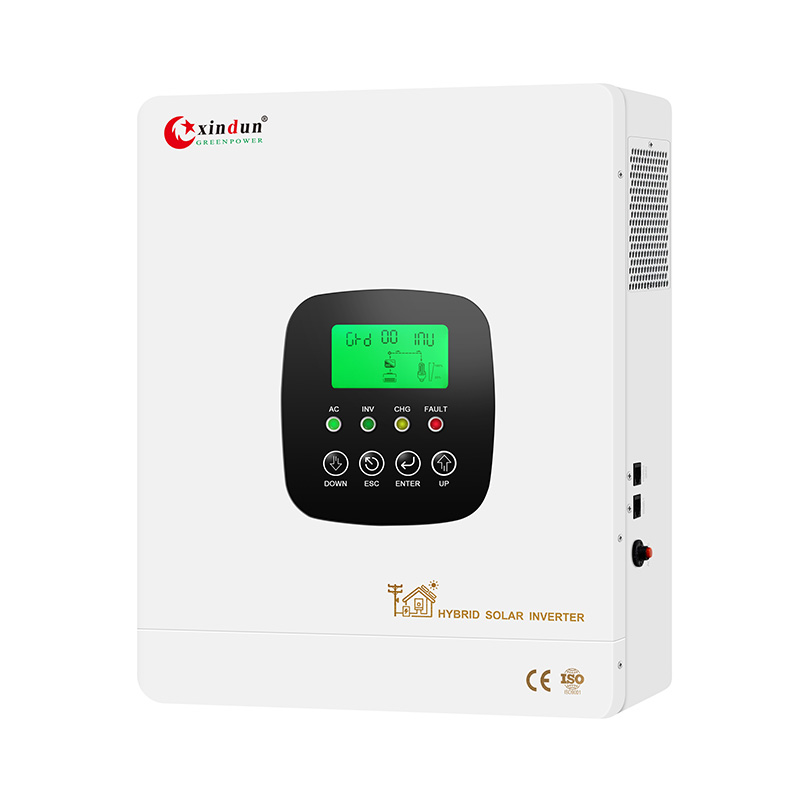
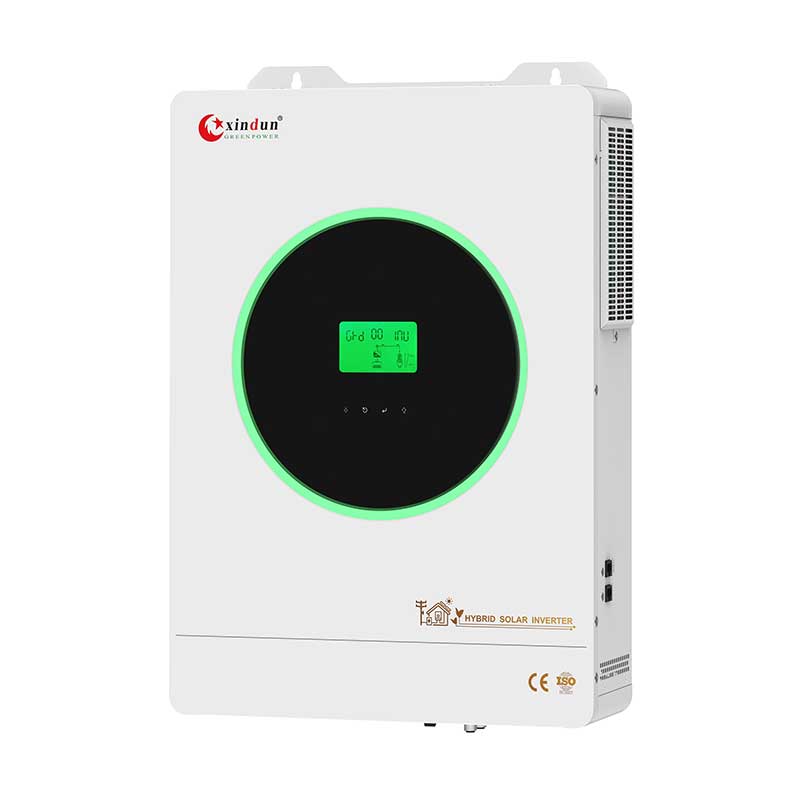
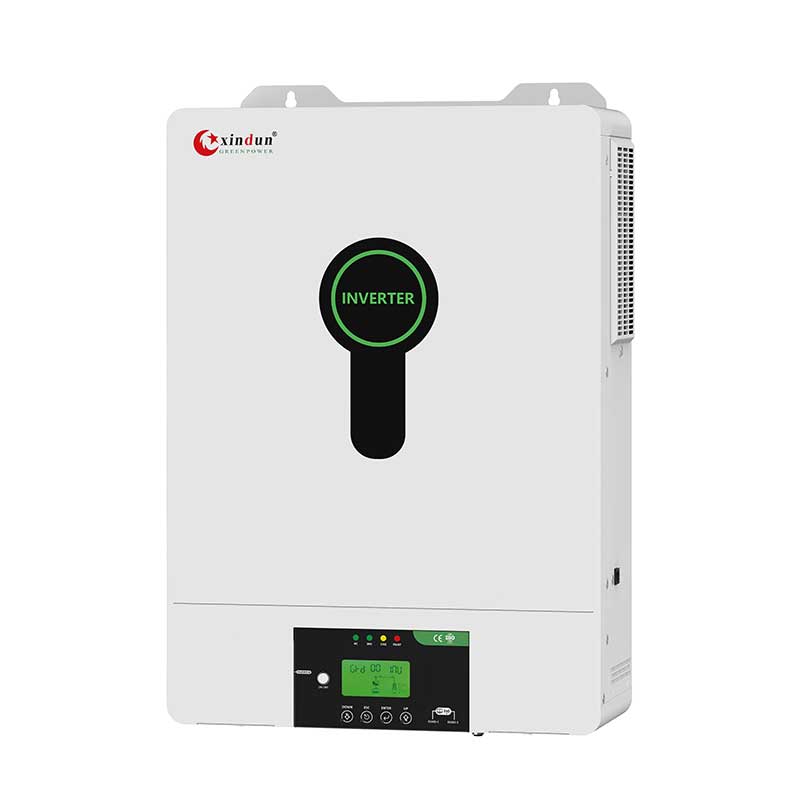


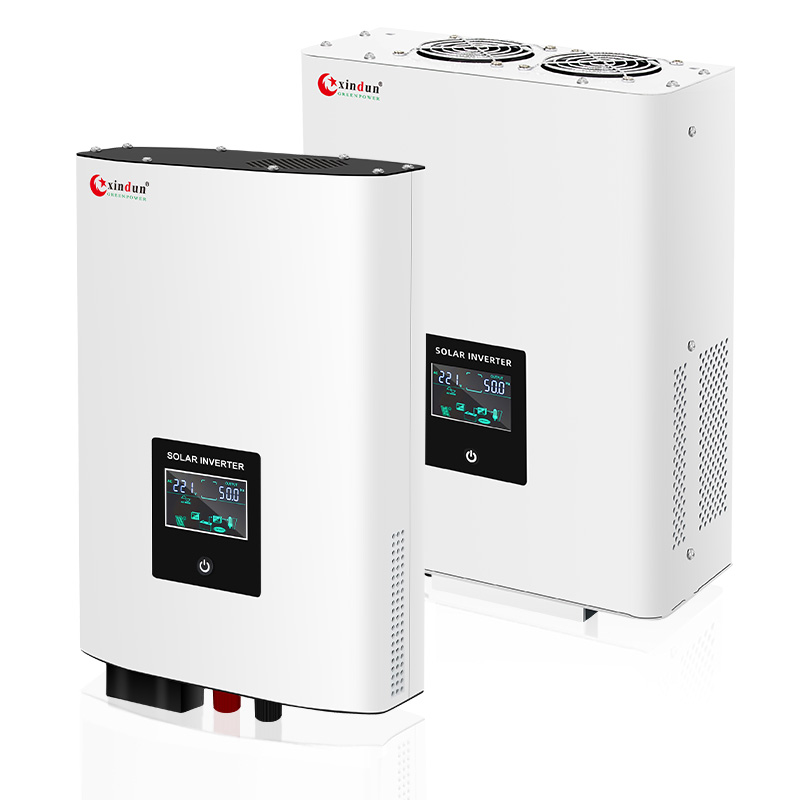
 Power Inverter
Power Inverter
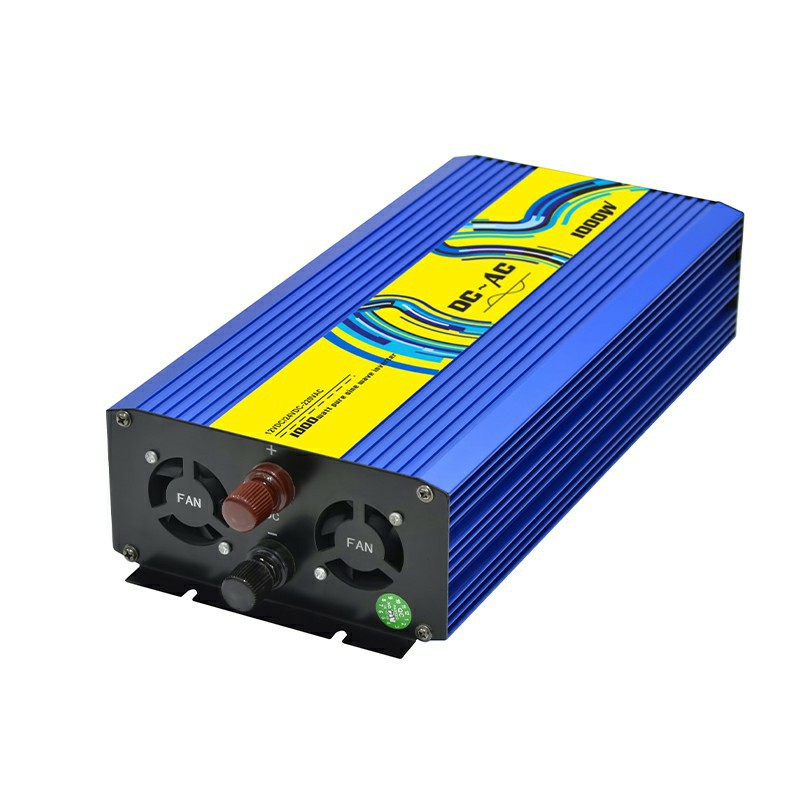


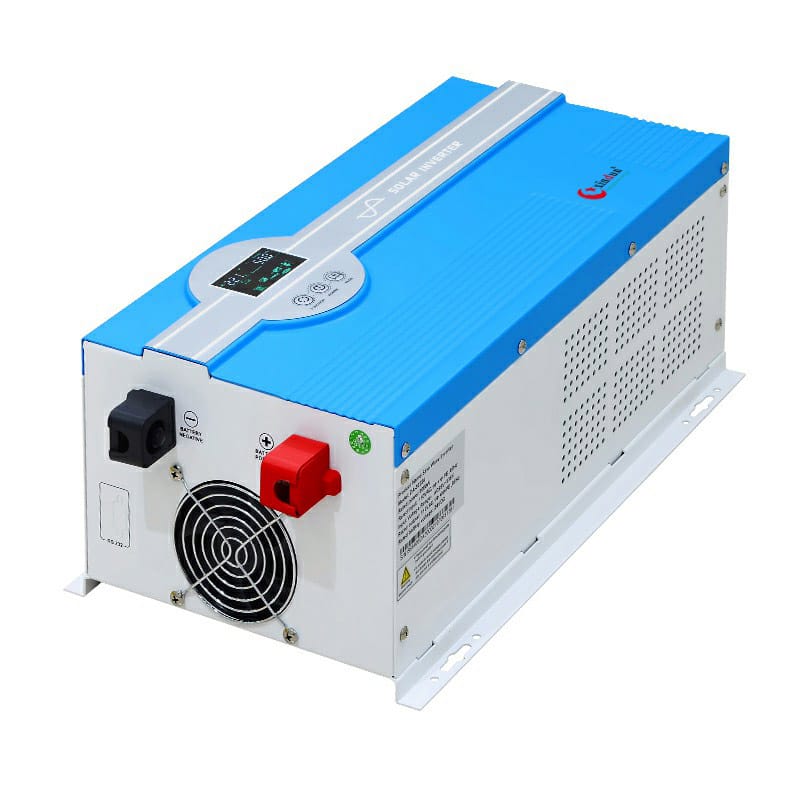
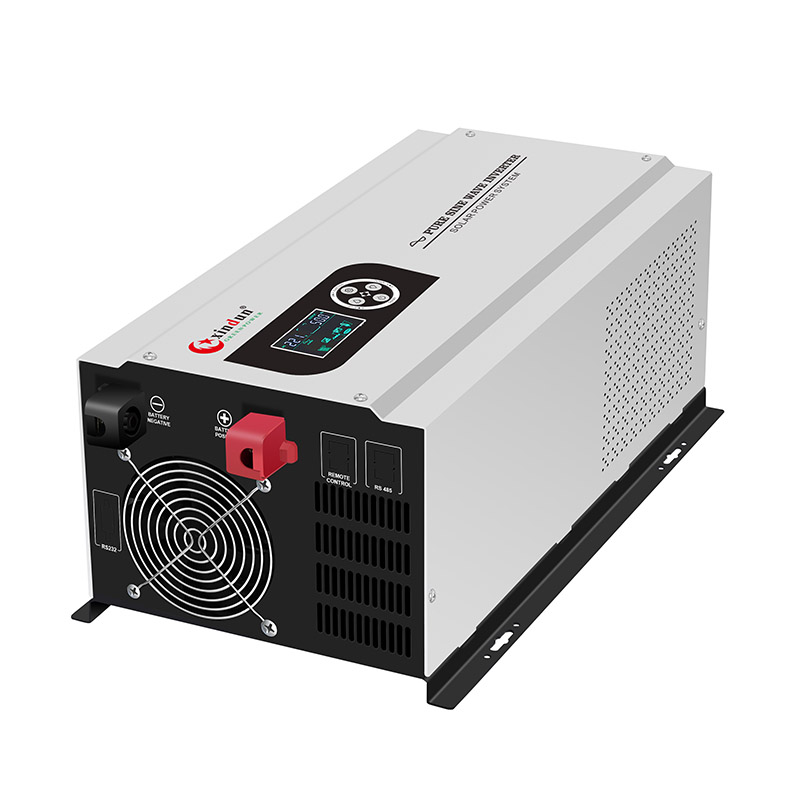
 Split Phase Inverter
Split Phase Inverter

 Energy Storage Inverter
Energy Storage Inverter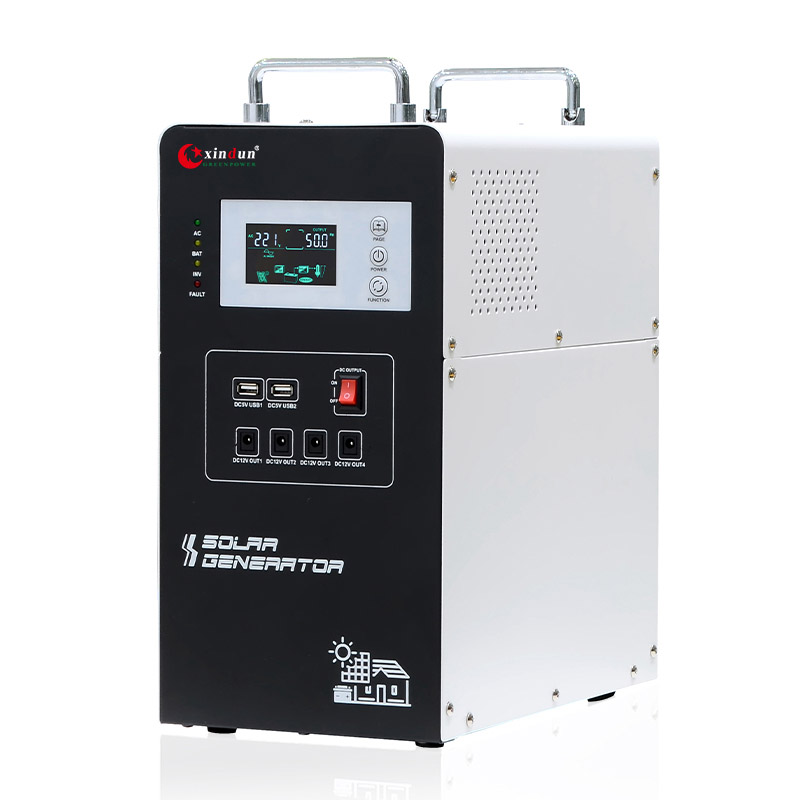




 3 Phase Inverter
3 Phase Inverter
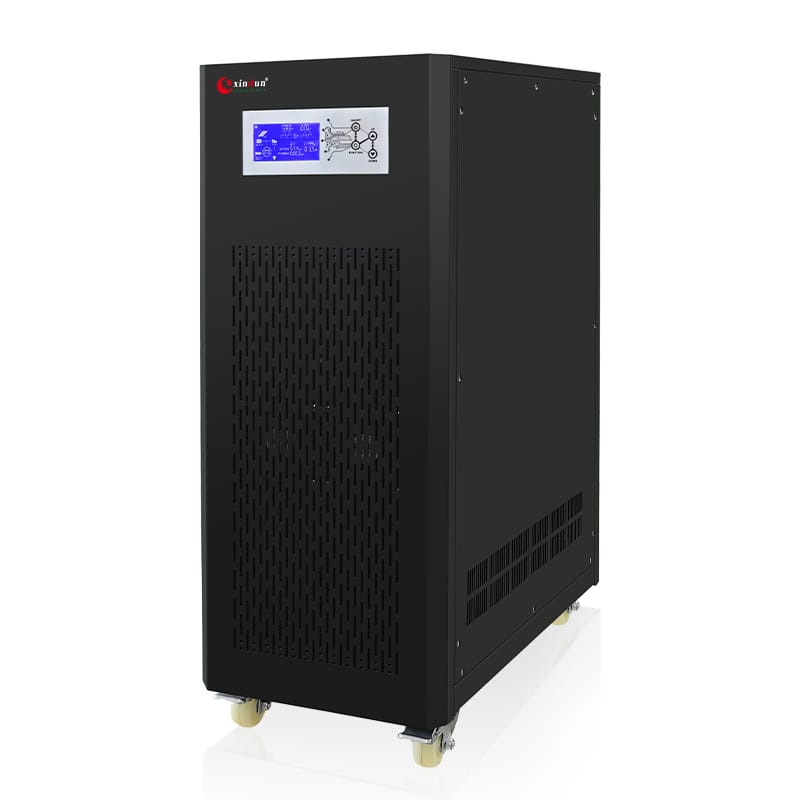



 Solar System Kits
Solar System Kits





 Solar Charge Controller
Solar Charge Controller
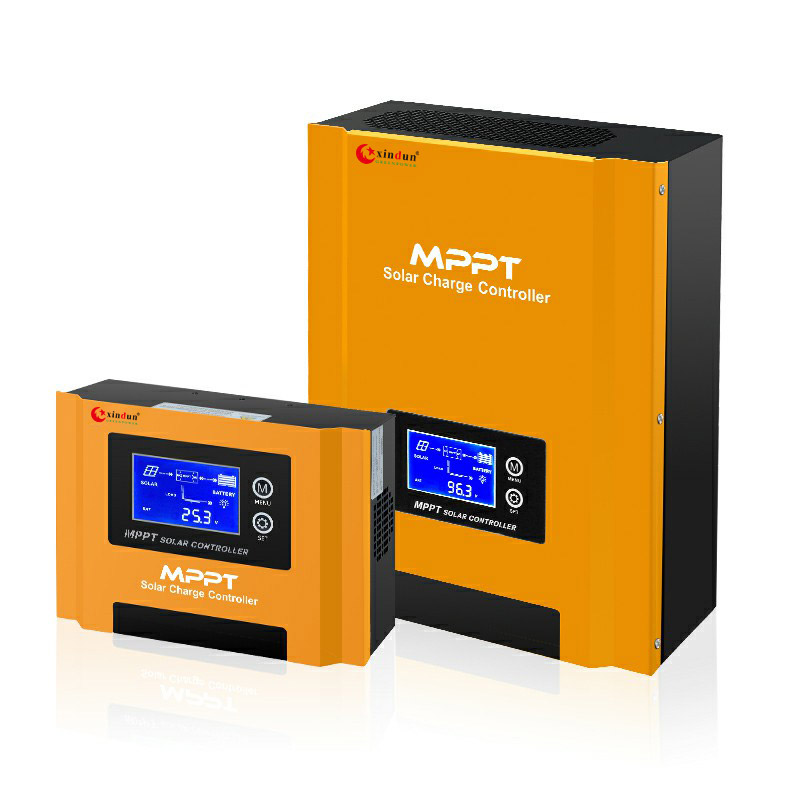

 Solar Battery
Solar Battery



 Asia
Asia
 Africa
Africa



 South America
South America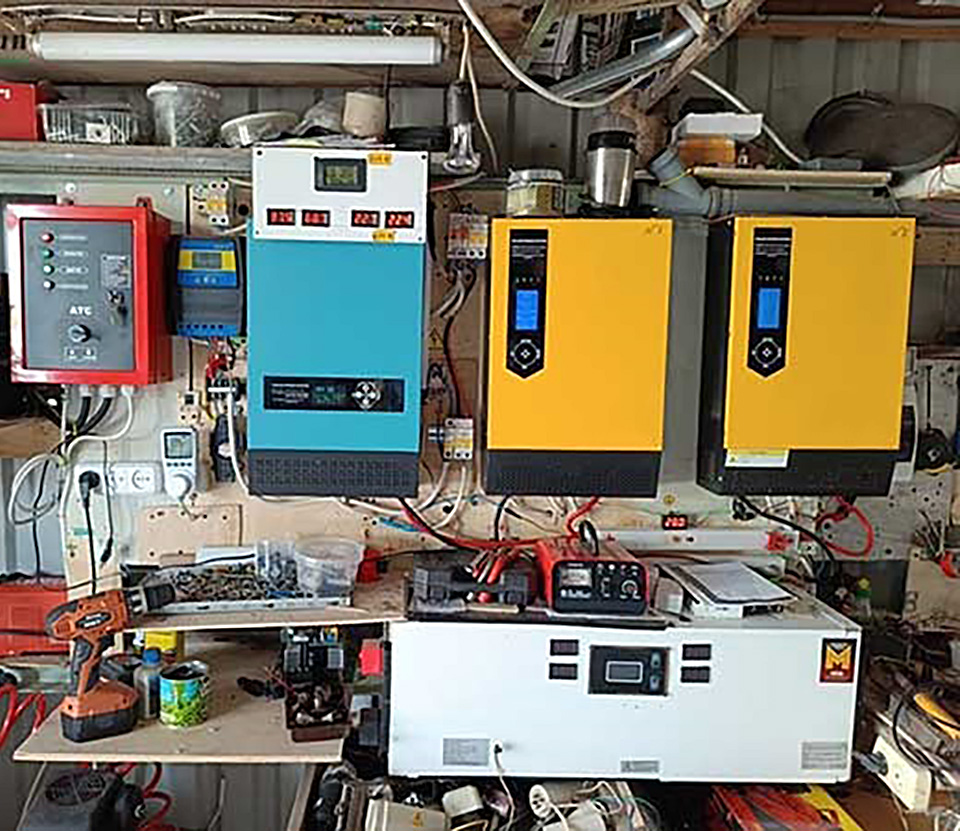
 Europe
Europe

 North America
North America

 Oceania & Antarctica
Oceania & Antarctica










 Home
Home How Many Solar Panels Can Be Connected To Solar Inverter?
How Many Solar Panels Can Be Connected To Solar Inverter?  Top Selling Products
Top Selling Products














